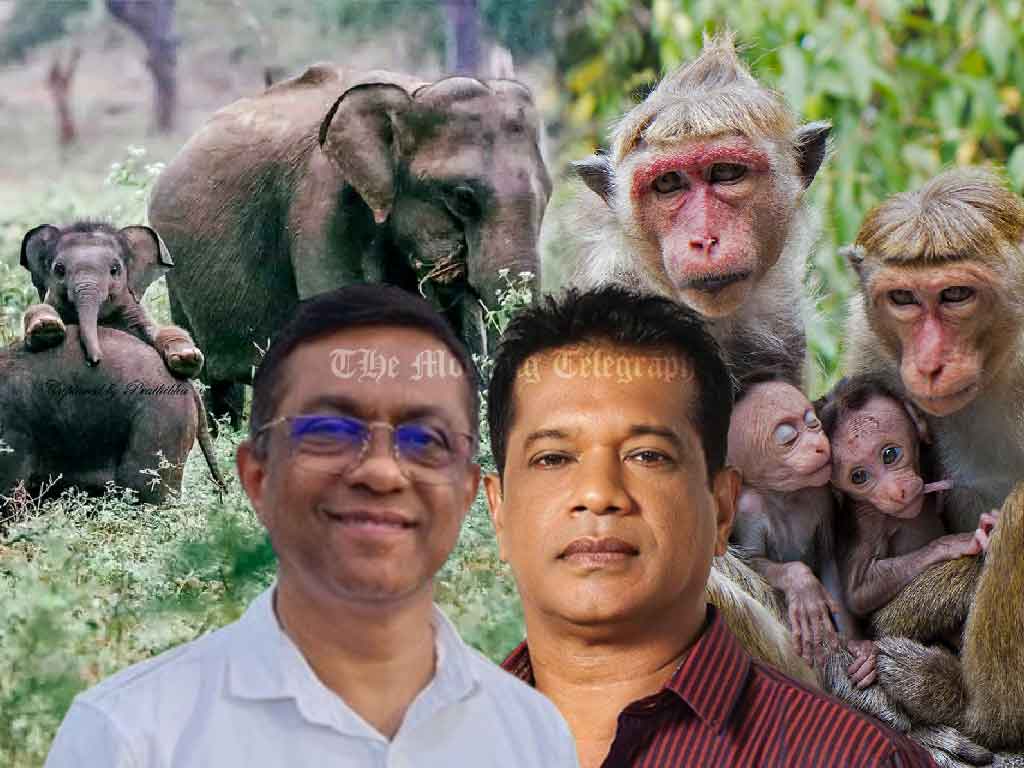
Ravindranath Dabare, Legal Advisor to the Environmental Justice Center, has condemned Agriculture Minister K.D. Lalkantha’s recent statement in Parliament, which suggested that farmers face no legal restrictions in addressing crop damage caused by animals. Dabare argued that the minister’s remarks were not only legally flawed but also potentially harmful, as they could lead to violations of Sri Lanka’s strict wildlife protection laws.
Minister Lalkantha had stated that farmers were free to handle animals damaging their crops as they saw fit, a claim that has drawn criticism from environmental organizations and legal experts. Protests erupted in response to the statement, with activists accusing the government of neglecting its responsibility to manage human-wildlife conflicts.
Legal Protections for Wildlife
Dabare emphasized that elephants, peacocks, and several other species are legally protected under the Wildlife Protection Ordinance of Sri Lanka. Section 12 of the ordinance explicitly prohibits the killing of elephants, even in cases where they damage crops. Similarly, peacocks and other animals often blamed for agricultural losses are listed as protected species, making their killing illegal.
“Such statements from a responsible minister mislead the public into believing they have the right to harm or kill these animals, which is a clear violation of the law,” Dabare said. He added that these remarks create a dangerous precedent, undermining years of efforts to conserve Sri Lanka’s rich biodiversity.
The Balance Between Conservation and Agriculture
While Dabare acknowledged the severe impact of wildlife on farming, particularly in rural areas, he urged the government to explore sustainable solutions. He noted that elephants often venture into human settlements due to habitat loss caused by deforestation, mining, and agricultural expansion, highlighting the need for proactive measures such as electric fencing, crop rotation, and community-driven conservation programs.
“Rather than encouraging illegal actions, the government must invest in innovative and humane methods to mitigate these conflicts,” Dabare said. He also called for better education programs to help farmers understand the legal protections for wildlife and the long-term benefits of coexistence.
Farmers’ Plight
Farmers across Sri Lanka report significant losses due to wildlife intrusions. Paddy farming, a cornerstone of the country’s agricultural economy, has been particularly hard-hit, with elephants, parrots, peacocks, and pelicans causing extensive damage. Farmers argue that current government interventions are inadequate, leaving them to bear the brunt of these losses.
While sympathizing with their struggles, Dabare stressed that indiscriminate killing is not the solution. He advocated for increased government support, including compensation schemes for crop damage and funding for research into non-lethal deterrents.
The ongoing tension underscores the need for a balanced approach that safeguards both livelihoods and wildlife. Environmentalists warn that if left unchecked, misguided policies could lead to ecological imbalance and the loss of iconic species, further endangering Sri Lanka’s biodiversity.




